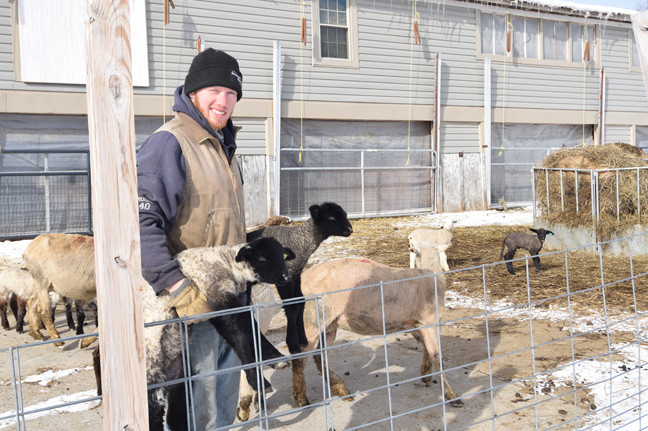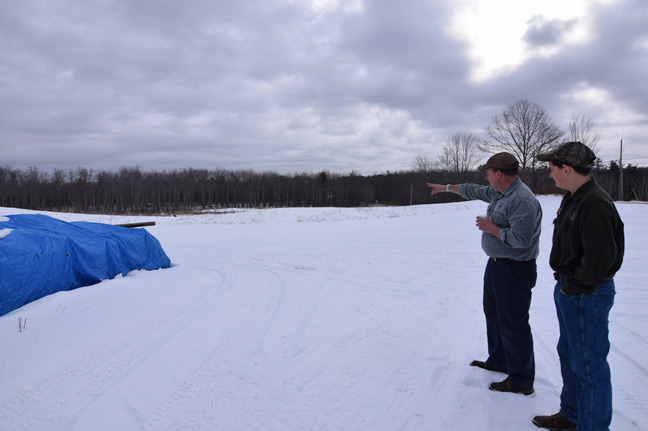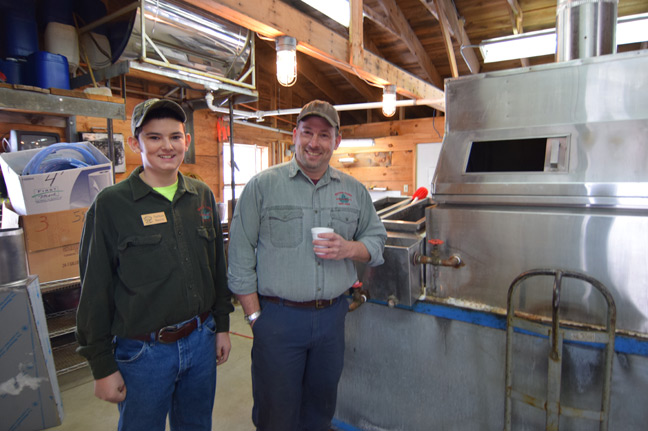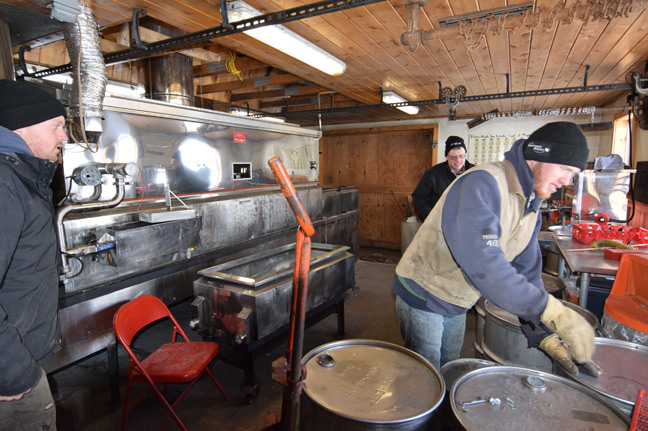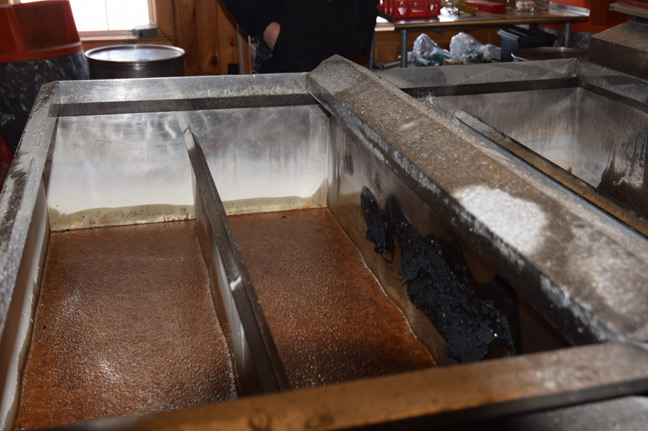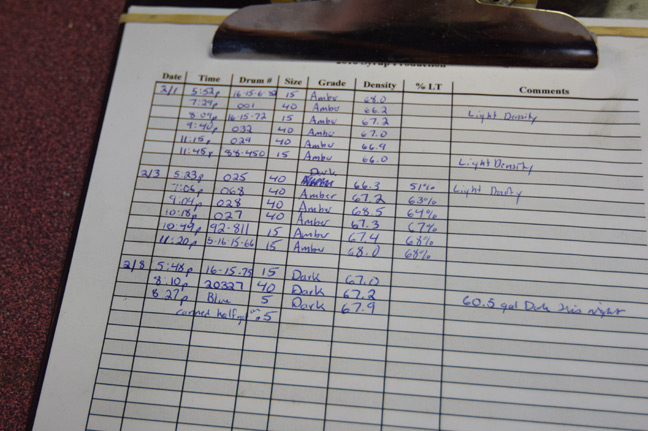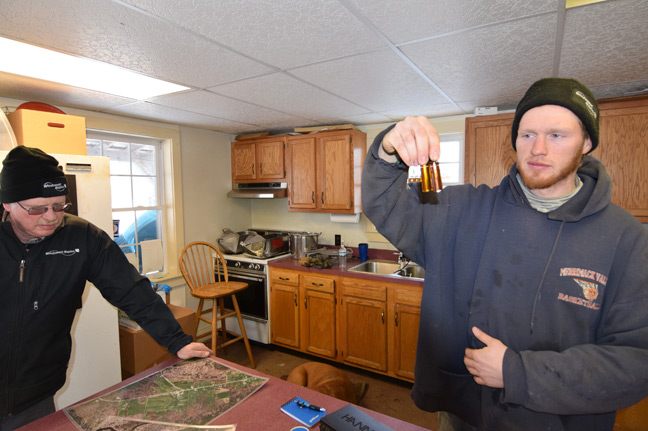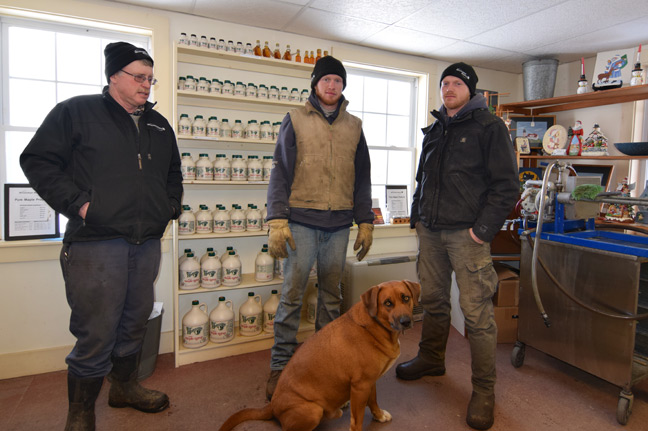Season Summaries
Back to reality
Sub-zero temps in Northeast cool down the early season tappers
By PETER GREGG |
SIDNEY, Maine—It was fun while it lasted.
A blast of Polar Vortex-fueled cold air in the Northeast sent sugarmakers back to reality this weekend.
It cooled off a frenzy of production that occurred on Jan.31 and continued through the first week in February.
“It was just enough to be aggravating,” said Kevin Bacon of Bacon Maple Farm in Sidney, Maine.
Bacon was one of those early tappers who caught the first, very early season run at the beginning of the month.
For him, it was in a sugarbush of red maples in a swampy area of his farm where the ground never freezes and the trees always run first.
This year it was on Feb. 1.
“Sap was running into the tank, so we either dump it on the ground or do something with it,” he said on Saturday during a tour for The Maple News. “It’s the earliest we ever boiled.”
Bacon, along with son Nathan and wife, Shelley, boiled on Feb. 2. While the sap tested at 2 percent sugar, there was only 600 gallons of it, not enough to run through an R/O. So he boiled it raw.
“I hate to do that,” he said.
In all, Bacon made 10 gallons.
By the time the below-zero temperatures came this weekend, all the pans and tanks were cleaned up and ready for the season to begin again.
Meanwhile, in Loudon, N.H. the Moore family—Larry Moore and sons, Jeff and Brad—had quite a bit of success catching the early runs.
By the time the freeze came (and the presidential primary was over in their state) the Moores had already made 600 gallons of mostly light syrup.
The family is also big in the sheep business, and at almost the same time as they were being crushed with sap off the 6,000 taps they already had drilled, they were lambing at about the same pace.
“We had 35 lambs in the barn,” said Jeff Moore.
For the past four years, the family have made it a regular practice to start tapping in January. In all, they tap 8,000.
“We usually like to start tapping before the lambs come,” Larry Moore said.
In between lambing, the men boiled on Feb. 1 and made 160 gallons, then again on Feb. 3 and made 215 gallons. The last boil, a clean up run, was on Feb. 8 where they made 60 gallons.
During a tour for The Maple News on Friday, the front pan of their evaporator was still filled with a frozen slush of sweet.
They had no concerns about the blast of Arctic air that came this weekend. In fact, they seemed grateful to get a chance to catch their breath after a frantic couple of weeks of sugaring and lambing (and avoiding phone calls from presidential pollsters).
Three years ago, they boiled for the first time on January 17 and the season was overall productive. The past two years, nothing came early.
Like most others who tapped early this year, they said it makes sense to try and grab early sap.
“You are spending the money, you might as well get everything you can,” Jeff Moore said. “It could be the difference between a poor year and a good year.”
February 2016















